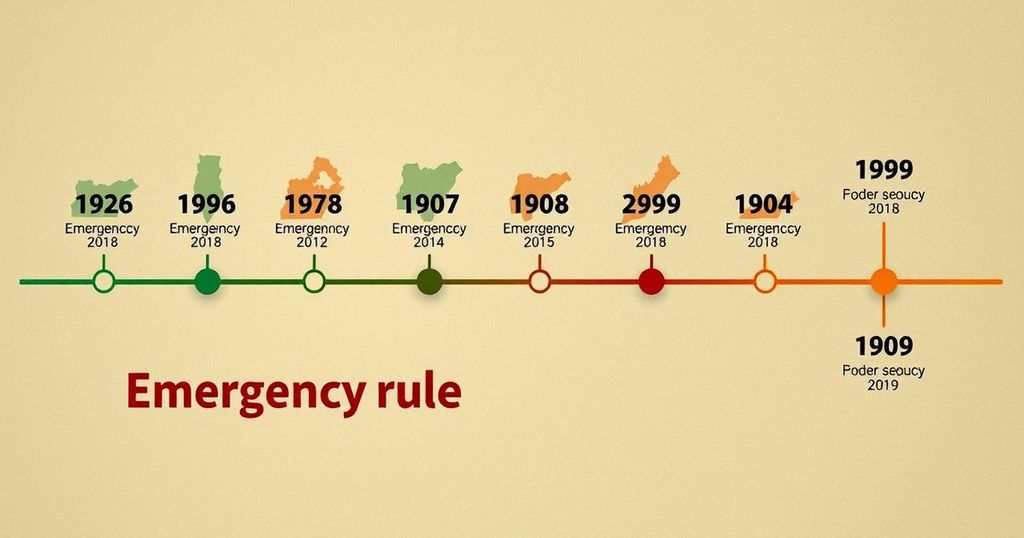This article outlines the history of emergency rule declarations in Nigeria since 1999, highlighting President Bola Tinubu’s recent declaration in Rivers State on March 18, 2025, which suspended the state governor and assembly members. It also reviews past emergencies declared by Presidents Obasanjo and Jonathan in response to ethnic violence and insurgency.
Since returning to civilian rule in 1999, Nigeria has experienced multiple declarations of states of emergency. Most recently, President Bola Tinubu declared a state of emergency in Rivers State on March 18, 2025. This declaration included the suspension of Governor Siminalayi Fubara, his deputy Ngozi Odu, and all members of the House of Assembly for a period of six months, invoking section 305 of the Nigerian Constitution.
Earlier, on May 18, 2004, President Olusegun Obasanjo declared an emergency in Plateau State due to rising ethno-religious violence, during which over 2,000 deaths were recorded. Governor Joshua Dariye and the State Assembly were suspended, and Major General Chris Alli was appointed as an administrator.
In 2006, another emergency was declared in Ekiti State following the controversial impeachment of Governor Ayo Fayose, which resulted in widespread unrest. President Obasanjo appointed Brigadier General Adetunji Olurin as the state administrator.
More recently on December 31, 2011, President Goodluck Jonathan imposed emergency rules in certain local governments of Borno and Plateau States. This was in reaction to the growing threat of Boko Haram attacks at that time.
From 2013 to 2014, a broader emergency rule was enacted across Borno, Yobe, and Adamawa States in response to the severe insurgency by Boko Haram, which included significant acts of violence and the kidnapping of schoolgirls in Chibok in 2014. The military gained expanded powers during this period.
Now, in 2025, President Tinubu’s proclamation in Rivers State underscores the persistent challenges faced in maintaining political stability, amidst ongoing power struggles within the state’s governance. Vice Admiral Ibokette Ibas has been appointed to administer the state during this emergency period.
The timeline of emergency rule declarations in Nigeria highlights the recurring challenges to governance and security since the return to civilian rule in 1999. From the devastating ethnic violence in Plateau State to the recent political turmoil in Rivers State, these interventions reflect the complexities of Nigeria’s socio-political landscape. Each declaration aimed to address pressing crises, yet the enduring challenges indicate ongoing instability within various regions.
Original Source: tribuneonlineng.com




